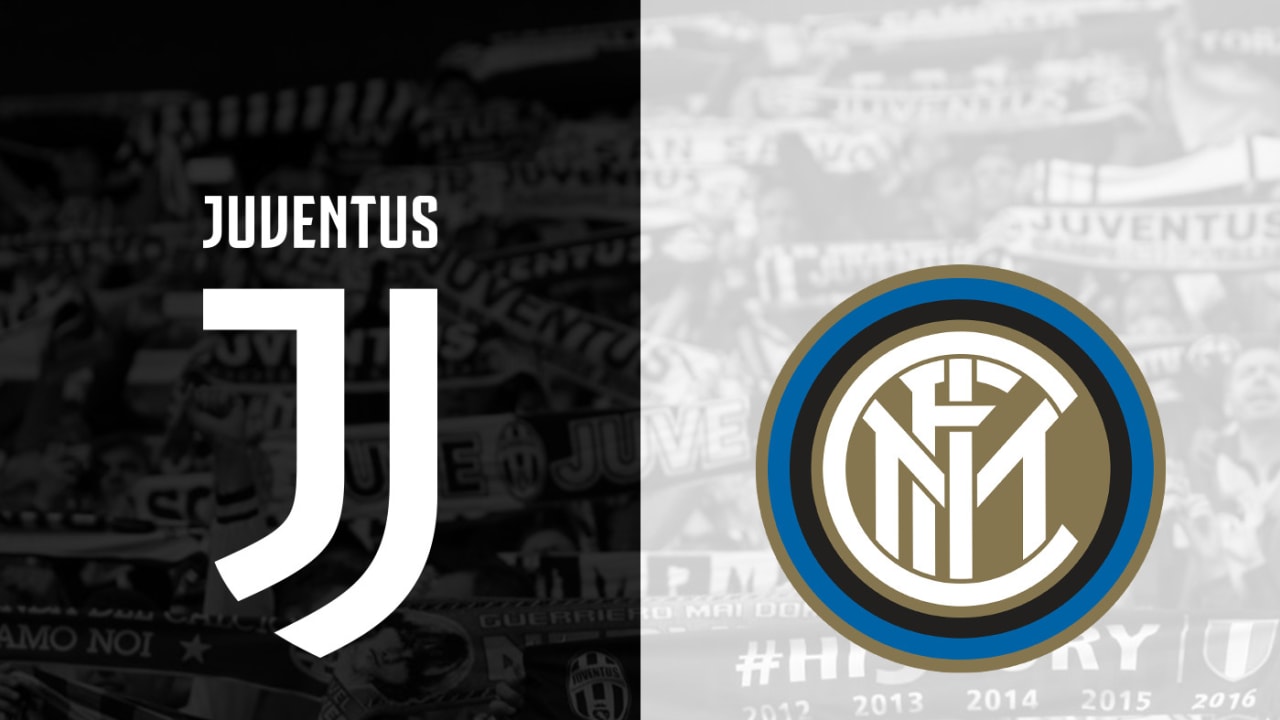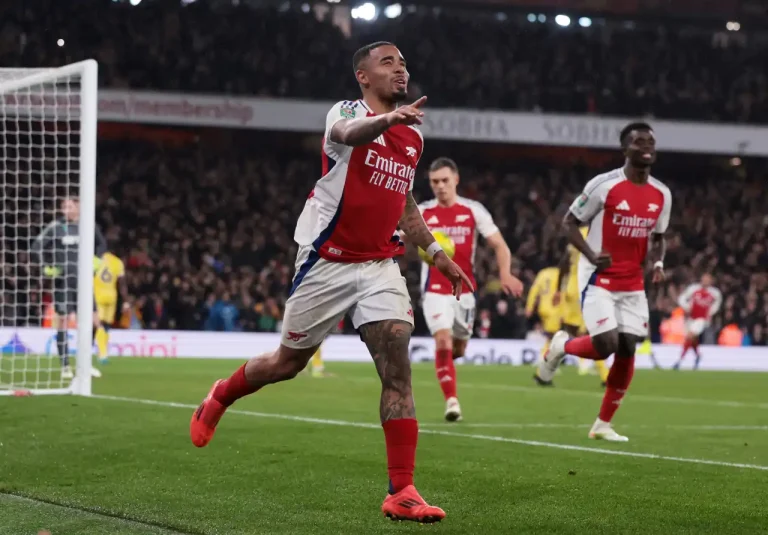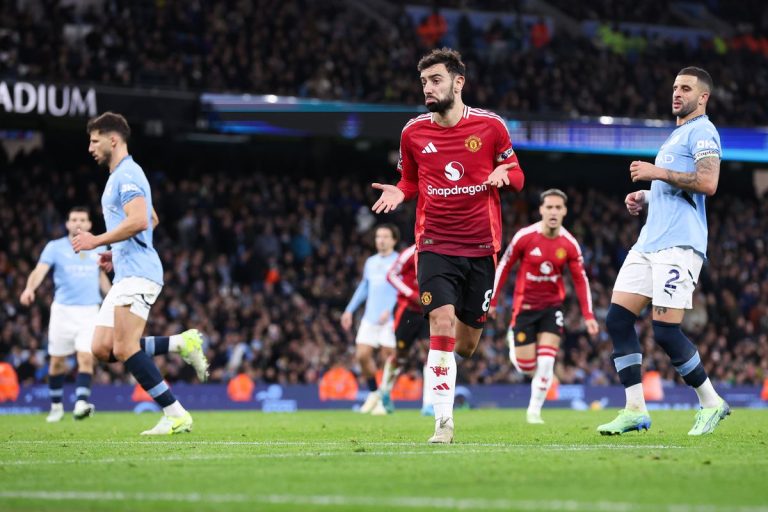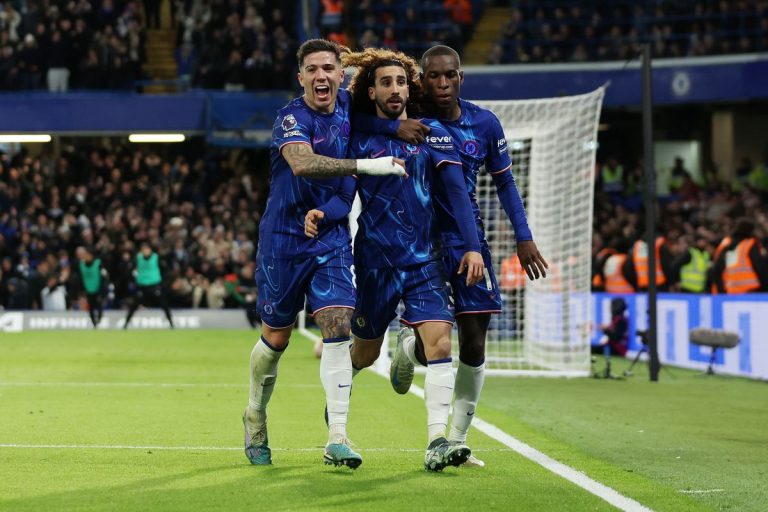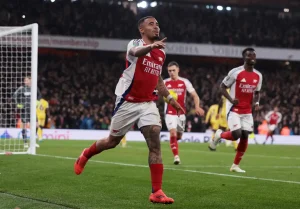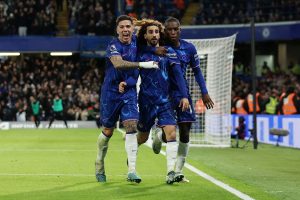The Italian derby, or Derby d’Italia, is a fierce match between Internazionale Milan and Juventus. These two football clubs come from the two largest cities in the northern region of Italy. Both Inter and Juventus have supporters throughout almost all of Italy; there are Inter supporters in the City of Turin, there are also Juventus supporters in the City of Milan. This was recorded on the official website of each club. Therefore, every Italian derby is arguably the biggest match in the country of pizza. Moreover, these two clubs are always favorites to win the Scudetto (Serie-A title), almost every season. The match between Inter and Juventus was first seen on November 14, 1909 in Turin, won by the hosts through Ernesto Borel’s two goals, without reply.
Furthermore, this match is considered the ‘peak’ of all football matches in Italy. Because, the Derby d’Italia is the most intense big game between cities since the 1930s. Meanwhile, the term Derby d’Italia was popularized by an Italian journalist named Gianni Brera. He described this match as between the two most successful clubs in Italy in terms of domestic titles, namely Serie A and Coppa Italia. On the other hand, this match is full of passion and cross-city hostility between Milan and Turin.
Invasion of the field due to overcrowded stands is the first intrigue and bad story of the Derby d’Italia match. It happened in Serie A 1960/61. Angelo Moratti was still Inter President and Helenio Herrera was the coach of the squad at the time. Together with Herrera, Inter began to threaten Juventus’ ambitions to dominate the Italian football title in the 1960s. Inter’s opportunity to get closer to Juventus in the standings at that time was on 16 April 1961 at the Stadio Comunale (now Stadio Olimpico Grande Torino). Ahead of the match, the City of Turin was already packed with Juventus supporters, as well as in the stands of the stadium. But apparently, the stadium stands at that time were not able to accommodate all the spectators who came.
As a result, the crowd of supporters had to enter the athletics track. Even some of them are already on the bench and the goalposts. “The distance between people is only a few meters. But there is no real threat of danger,” said Aristide Guarneri, Inter’s goalkeeper at the time, as quoted by Storie di Calcio. Guarneri, who feels the situation is still safe, is different from Genoa Gambarotta, the match referee. He stopped the game in the 31st minute. The regulations at the time stated that victory should have gone to Inter as the visitors. The decision was originally expected to help the club nicknamed I Nerazzurri win the Scudetto. The reality is different because the Italian Football Federation has received an appeal from Juventus for a rematch.
They also do not want to be harmed because of the invasion that could hinder the hunt for the 12th Scudetto. The decision sparked protests, suspicions and accusations poured into the appeal. Moreover, Umberto Agnelli served as President of Juventus and the Italian Football Federation at that time. “We slipped two points from Juve. We feel cheated,” said Guarneri.
The match was repeated on June 10, 1961. As a protest, Inter only fielded primavera players whose average age was 19 years. Most of the players at that time still had to deal with school education. One of them was Sandro Mazzola who scored Inter’s only goal in that match. Meanwhile, Juventus fielded almost all of the main squad, including Omar Sivori, who had ambitions to become the top scorer and win the Ballon d’Or.
The striker who was born on October 2, 1935, scored six goals in a match that the Bianconeri won 9-1. The six goals had disappointed Sergio Brighenti, the Sampdoria striker. His name was at the top of the top scorer while being eliminated by Sivori’s six goals (before chasing again in the rest of the season). This also had an impact on Sivori’s 1961 Ballon d’Or. Something that perfected the Juventus Scudetto in the 1960/1961 Serie A.
Controversy is familiar in the rivalry between Inter and Juventus. One of them was in the struggle for the 1997/98 Serie A title which was painful for Moratti’s lineage. Inter, which is currently under the presidency of Massimo Moratti, witnessed the referee’s controversial decision that tends to favor Juventus in the Derby d’Italia on 26 April 1998 in Turin. For example, when Ronaldo was violated by Mark Iuliano in the penalty box, the match continued. But when Alessandro Del Piero was violated by Taribo West in the penalty box, the referee awarded a penalty. Even though Del Piero failed to execute him, chaos ensued. Almost all the Inter players protested to the referee and almost sparked several fights.
The heavy blow was getting heavier because Juventus won the 1997/98 Scudetto. Meanwhile, Inter had to settle for runner-up by five points behind at the end of the season. The incident in Turin caused heated debate among football fans across Italy. Even the debate reached the Italian parliament. “We are not in the stadium. This is an inappropriate, shameful and strange spectacle,” Deputy Prime Minister Walter Veltroni said, as quoted by the BBC.
There is a view that the incident was a series of refereeing errors in Juventus’ favor in the race for the Serie A title. The debate also widens the question of whether referees in Italy are really objective, or dare not go against the institution of a big football club like Juventus. The relationship between Inter and Juventus is getting hotter.
The intrigue between the two takes root with each meeting. The Derby d’Italia match is increasingly becoming one of the hottest matches in Italy. Like Paolo Montero’s punch to the face of Luigi Di Bagio in December 2000. Likewise with Zlatan Ibrahimovic’s punch to Ivan Cordoba and his header to Sinisa Mihajlovic in 2005.
The relationship between the two clubs is even more full of intrigue after the Calciopoli scandal in 2006. The credibility of Italian football has also been at a very low point due to Calciopoli. Even though Italy just won the 2006 World Cup. But Calciopoli is most felt for Juventus and its supporters. Because Calciopoli has shaken the magnificent building of the club nicknamed the Old Lady to be shaky. This case also forced Juventus to lose the 2004/05 and 2005/06 Serie A titles and had to give it to Inter. Luciano Moggi as Juventus Director of Football at that time was also arrested. Between the Inter and Juventus camps, they continue to accuse each other. Juventus feel they have been treated cruelly and continue to look for new evidence to light their defence.
Inter are also accused by many Juventus supporters of stealing the title and its players. Despite the fact, Juventus were so desperate to cut player salaries after relegation that they released Ibrahimovic and Patrick Vieira. While Moratti and Inter, feel the justification even though it is considered the most controversial decision. Moratti actually considered it the “scudetto of honesty”.
Juventus also need a long time to recover. One season they struggled promotion from Serie B 2006/2007. Then struggled in Serie A for four seasons, until finally winning the Scudetto nine times in a row since Serie A 2011/2012. And now, Inter have to admit that Juve are still the biggest rulers of Italian football.
Since Calciopoli, criticism has continued to rise against the clubs most affected by the decision by the Italian sports court. According to the website Repubblica.it in 2007, as many as 88 percent of those interviewed, thought that supporting a football club in Italy was no longer credible because there were too many interests. There are also many supporters who make Juventus a club they don’t like.
Although the AC Milan camp is more inclined to dislike Inter. Besides that, Javier Zanetti’s former team has also become the target of criticism and suspicion in such a way. Inter is also considered to be one of the unpleasant football clubs in Italy even though it is not as thick as Juventus. But at the same time, the Old Lady are still the most loved and hated football club in Italy.
Cornered by much of Italy’s fanbase, Juventus supporters appeared far more militant and showed their anger more clearly. It was clear how their support became one of the factors for Juventus’ promotion to Serie A 2007/08. That season was also a sign of the return to normalcy of Italian football due to the return of Juventus.
Since that season, Derby d’Italia matches are more at risk of violence than previous encounters with Calciopoli. The hottest meeting after Calciopoli was the Derby d’Italia on 5 December 2009 in Turin. Prior to the match, Juventus wrote an open letter to their supporters to refrain from singing racist songs to Mario Balotelli, the Inter striker at the time.
When the Inter players arrived in Turin, the bus was pelted with eggs by some Juventus supporters. This match was marked by seven yellow cards, one red card for Felipe Melo and a number of fierce fights on the pitch. Especially between Gianluigi Buffon and Thiago Motta. Jose Mourinho was sent off at half-time for arguing with the referee. Mourinho did not accept Walter Samuel’s encouragement to Alessandro Del Piero who became a free kick for Juventus.
Meanwhile, the nickname Derby D’Italia has been increasingly questioned in the past year. Traditionally, these two clubs have competed the most in the top flight of Serie A. Inter managed to win the first competition with Serie A format in 1929/30. While Juventus has been a successful football club since Italian football was founded in 1898. These two clubs were also the winners of the most Scudetto until 1994. But after that time, Milan was able to win more titles than Inter. It was the first trigger for this Derby d’Italia objection. The most relevant factor in the Derby d’Italia nickname is the issue of relegation. One factor in the nickname of the Derby d’Italia is that neither Inter nor Juventus have ever been relegated.
However, it has become a major factor in the issue of the Derby d’Italia name after Juventus were relegated to Serie B 2005/2006. Moreover, the relegation of the Calciopoli case against Zinedine Zidane’s former club was revealed. The name Derby d’Italia also became a problem after Juventus were relegated to Serie B in the 2005/2006 season. This means that Italian journalists need to give a new name to this grand meeting of football in Italy.
But Italian football in Calciopoli’s perception is like a paradox. Because the main effect of the disgrace is not only to fuel competition and mutual suspicion between all elements of Italian football clubs, but also to sacrifice passion. Among these are other passions for disclosing score-fixing for the few who still believe in it. Neither in Italy, nor the world.
ASL

